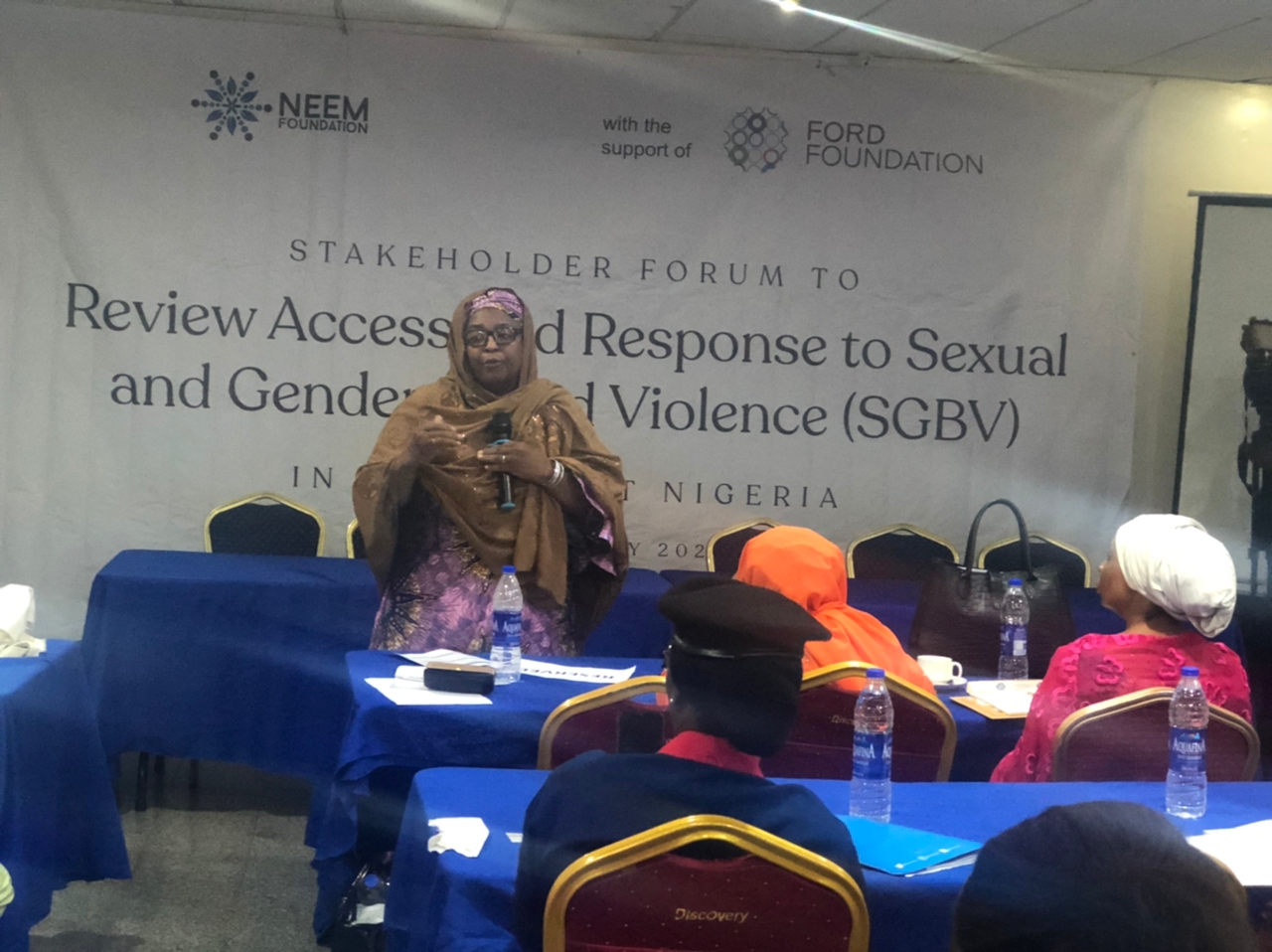Gift Wada
Exeprts and stakeholders in the gender space says Nigeria needs to enact more stringent laws, and improve budgetary allocation if the country must tackle Sexual and Gender-Based Violence (SGBV).
This call was made on Wednesday during a stakeholders forum to review and reflect on the response and access to GBV services for survivors organised by the NEEM foundation in Abuja.
Dr Fatima Akilu, Executive Director, Neem Foundation, urged the federal government to also implement existing laws on SGBV, and provide adequate political commitment.
“We hope to see new and improved laws and national action plans that provide for protection and provision of multi-sectoral services that include free hotline services, police and justice responses, shelters, legal aid, medical and health care services, including sexual and reproductive health services, and psycho-social counselling and support to women survivors of violence and their children,” she said.
“It is also essential that these services work together most efficiently and effectively to reduce the burden and impact on women and girls in reporting, response and recovery. These processes can be empowering for women,” she explained.
While stating the need for the implementation of the already existing laws adopted in states, Akilu explained that the Violence Against Person (Prohibition) Act, VAPP, and Child Protection Laws in the states obligate them to take responsibility for responding to violence against women and girls.
She stressed that the Implementing and adopting these Laws is a strong foundation for women and girls’ rights to equality and freedom from violence.
“We count on sensitisation/education programmes that teach human rights, equality and mutual respect. We need increasing numbers of women in politics, law enforcement, and peacebuilding architectures. We need adequate social protection, equal economic opportunities and decent jobs for women,” Akilu noted.
In her remarks, Senior Programme Officer Gender and Social Inclusion department, Neem Foundation, Minoe Duamwan affirmed the need for budgetary allocation in tackling Sexual Gender based violence. She said funding is very important in every project implementation hence government should provide budgetary allocation specific to gender issues.
“There’s a lot that CSOs and international organizations can do in terms of funding but government still need to do their part. Funding is for a short period , so we want government to be able to provide budgetary allocation to the fight against gender based violence,” she explained
According to Duamwan, most of the gaps identified in the fight against GBV is inadequate capacity of the states in terms of mental health provision support to victims.
While commending the Neem foundation and Ford foundation for the implementation of “prevent and protect project” a gender based violence program held in Sokoto, the Commissioner, Ministry for Women and Children Affairs Sokoto State, Hajiya Kulu Sifawa disclosed that Sokoto state has thrived so much in the fight against GBV.
Sifawa stated that surveillance structure was set in Local government levels, respond team was created in state level, sensitization were carried out across communities and the state has developed a gender policy framework and a child protection law.
She said, “We have enjoyed the capacity building of state and non-state actors to respond to gender-based violence, especially in the delivery of quality mental health and psychosocial support services. We are equally grateful to this project for strengthening the already existing GBV platform (The Sokoto State GBV/CP Response Team) to continue meeting its established mandate.
“The response team was established by the Ministry of Women and Children Affairs with a focus on prevention efforts and particularly addressing the root causes of GBV and harmful practices against women, children, and girls and ensuring access to inclusive, timely, and quality service delivery for victims and survivors of violence,” the Commissioner disclosed.


[…] Read Also: Stakeholders demand tougher laws to tackle sexual, gender-based violence in Nigeria […]